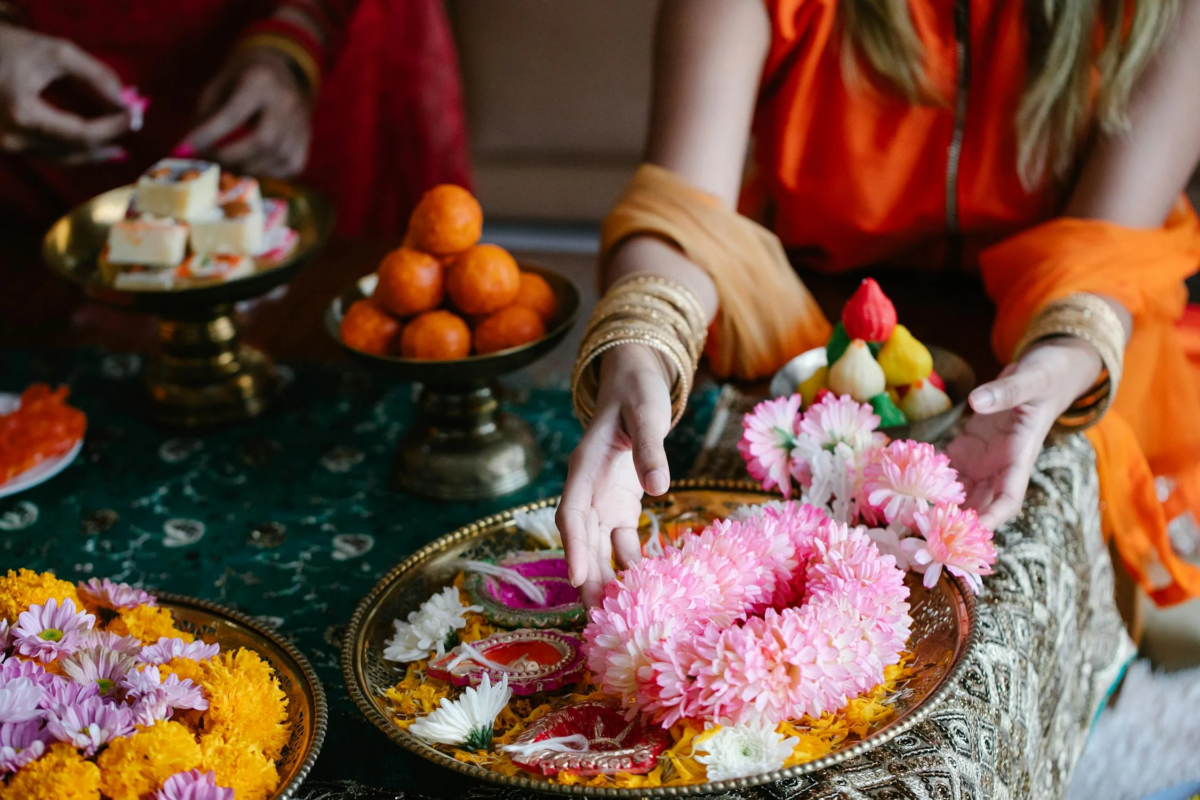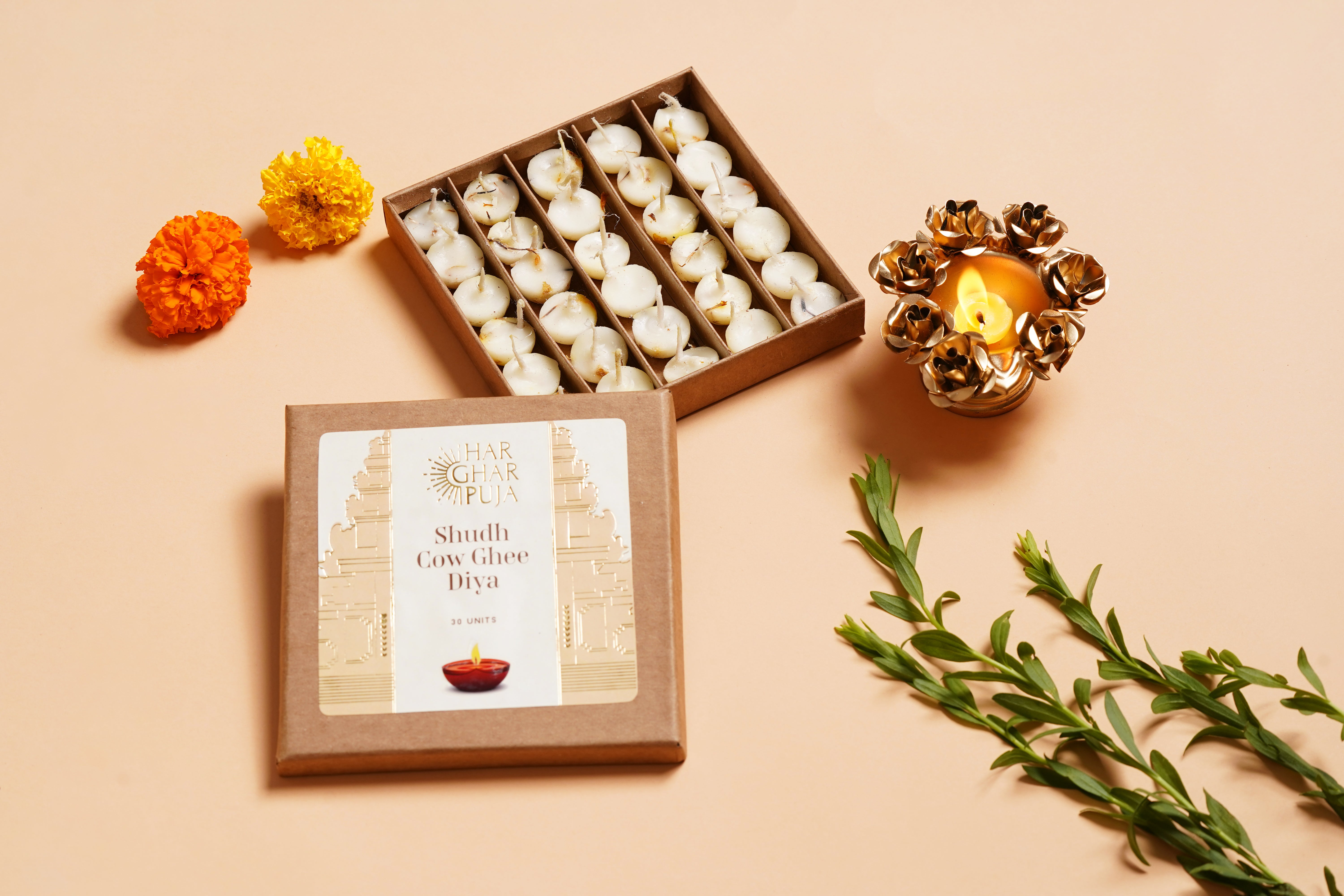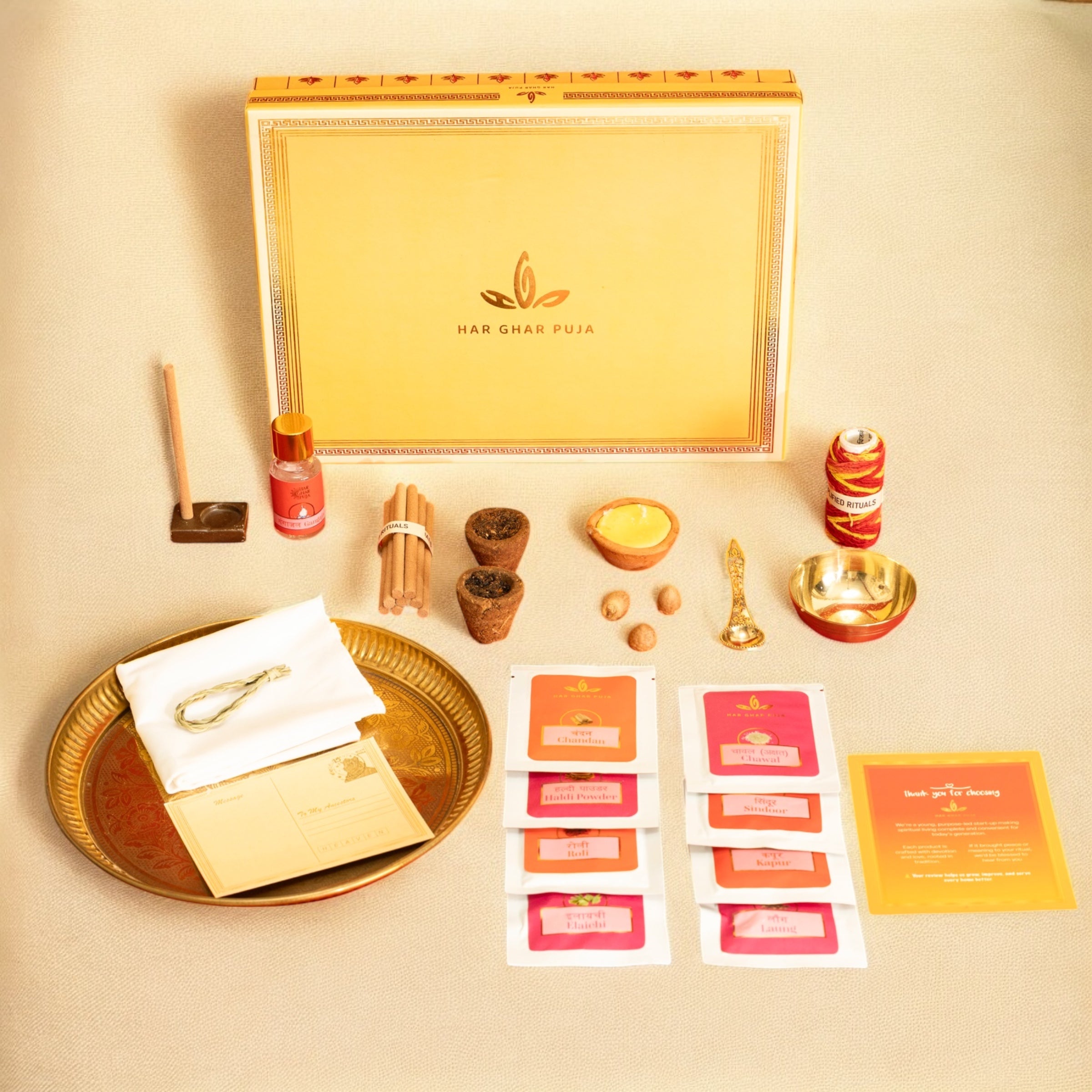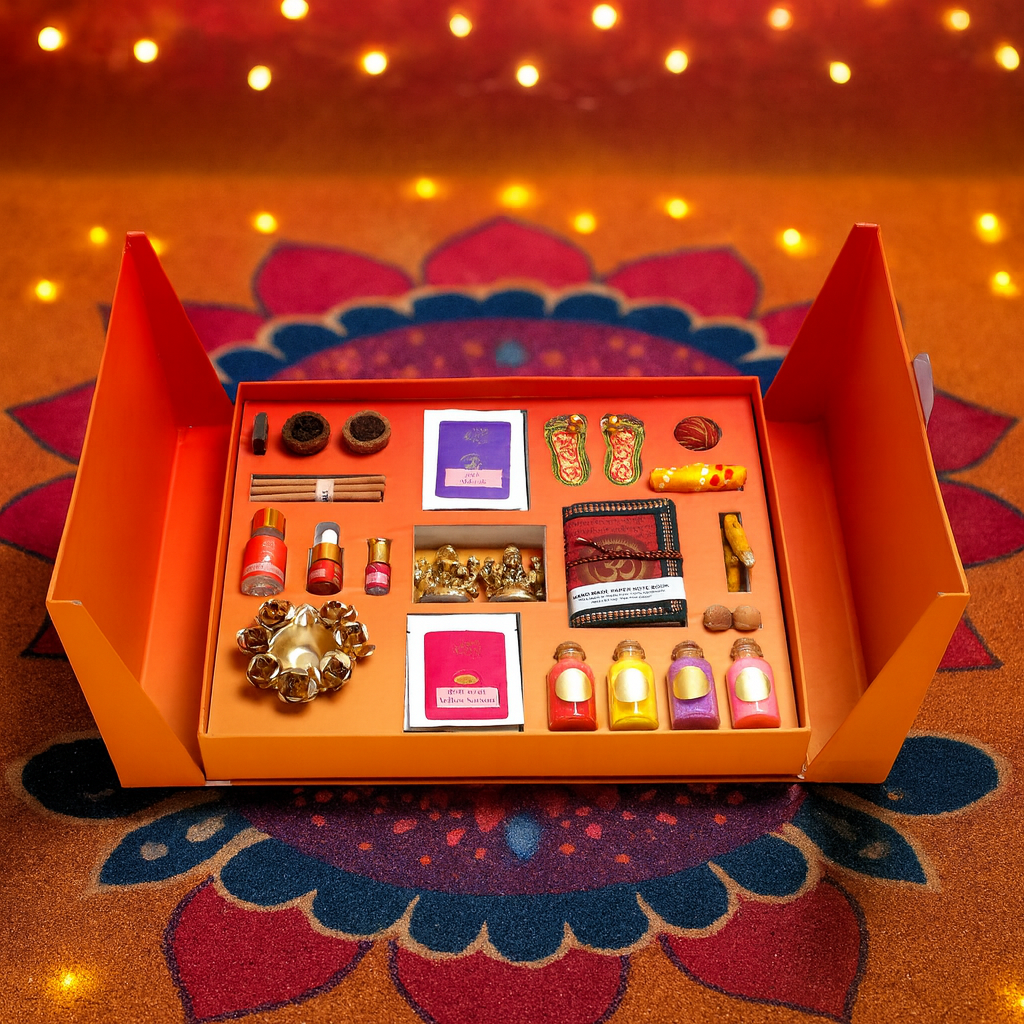Karwa Chauth is fast which is observed by married women for the safety and long life of their husband. According to the Hindu Panchang Karwa Chauth is celebrated on the fourth day after the full moon in the month of Kartik but are you aware why we celebrate and observe fast on this day and what is the story behind this, lets find out.
Table of Contents
The Story of Karwa Chauth
One popular story goes like this, once near the bank of Tungabhadra river Goddess Karwa used to live with her husabnd. One day when her husband was bathing in the river a crocodile caught hold of his ankle and started dragging him into the river. Facing the fear of imminent death he called out loudly to Karwa. Listening to the voice of her husband she rushed to the river saw his husband in danger and immediately bind the crocodile with a thin cotton thread, because of the power of her devotion the crocodile could not move.

After this Karwa requested Yamraj to grant her husband with more life and to took the life of crocodile in place. To this Yama said that the crocodile is yet to live and your husbands’ life is completed hence he could not do that. Karwa got very angry upon this and threatened Yamraj to curse him if he did not comply. Yamraj realising the power of devoted married women sparse the life of her husband and since then married women started worshipping Devi Karwa asking her to protect their husband in the same way she protected hers.
Another Story of Karwa Chauth
According to another popular story there was a wealthy merchant. He had seven sons and one daughter. On the fourth day of the Kartik month, the merchant’s wife his seven daughters-in-law and his daughter all observed the Karwa Chauth fast. In the evening when the merchant’s sons sat down for dinner they all asked their sister to join them for dinner to which she replied that she would eat only after offering Arghya (a water offering) to the moon since she took a vow to remain fasted.

The brothers were deeply attached to their sister and could see her suffering so they decided to trick her. They light something behind a giant peepal tree and asked their sister to offer arghya to the moon. The innocent sister believed her brother and broke her fast early.
Because she broke her fast early her husband fell seriously ill, then realizing her mistake she prayed to Lord Ganesha for forgiveness. She served her husband for entire one year and when the next Karwa Chauth came she took the fast and completed it with complete devotion and because of this her husband gained his health again.
As said before Karwa Chauth is a fast which is observed by married women only however with the passage of time this a fast which even husbands have started observing for their wives. Ultimately it is fast of love and devotion and therefore modern husbands to express their love to their wives took this fast.
If you are looking to surprise your wife with some gifts on the day of Karwa Chauth then here we are suggesting some gift ideas so that you can express your love. Click here to know more about the gifts.







